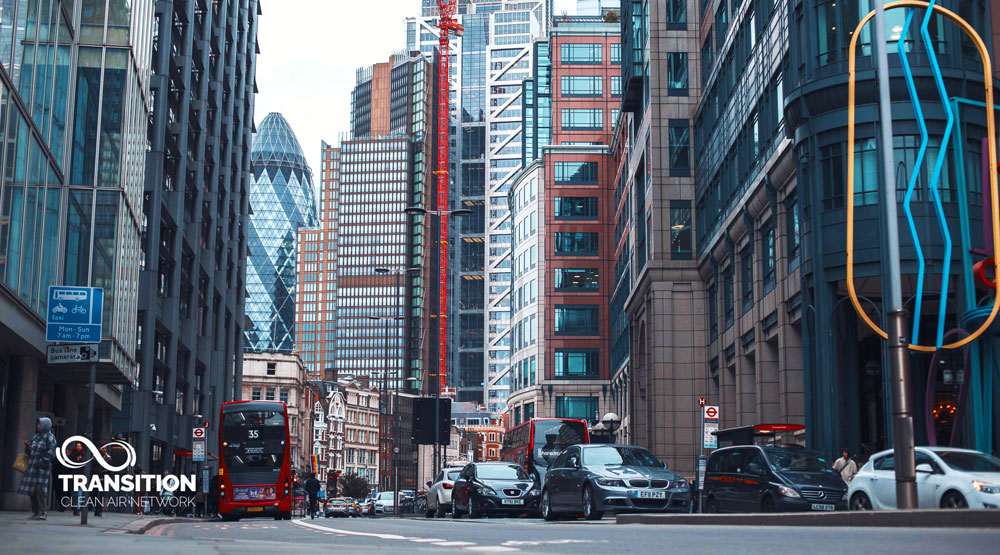Rt Hon Grant Shapps MP
Secretary of State for Transport
Department for Transport
Great Minster House
33 Horseferry Rd
Westminster
London SW1P 4DR
15 July 2021
The UK Government yesterday published its long-awaited Transport Decarbonisation Plan: an ‘ambitious greenprint’ to decarbonise all modes of domestic transport by 2050. The scale of the challenge ahead is evident: transport is the largest contributor to UK domestic greenhouse gas emissions, responsible for 27% of carbon emissions in 2019.[1] In November 2021, the UK will host the United Nation’s annual climate change conference, COP26, where the UK’s leadership in tackling climate change, including in the transport sector, will be showcased on a global stage.[2]
Building on existing commitments to ban sales of new petrol and diesel cars by 2030, we welcome ambitions to phase out sales of fossil-fuelled HGVs by 2040, and to decarbonise the aviation sector by 2050. However, the Plan falls notably short on binding commitments: many policy intentions are subject to consultation, and hence vulnerable to lobbying; and the aviation-focussed ‘Jet Zero’ consultation is limited to a target (not mandated) emissions reduction. Moreover, several strategies outlined to reach ‘net zero’ rely on future technologies and do not support, at least not sufficiently, its stated intent to ‘create cleaner, quieter cities and communities for better quality of life’.[3]
Transport Secretary, Grant Shapps, wrote, ‘We will still fly on holiday, but in more efficient aircraft, using sustainable fuel. We will still drive, but increasingly in zero emission cars’[4], reflecting a primary emphasis on technological innovation as the route to delivering net zero ambitions. This approach risks the potential offsetting of many positive measures in the plan by increased travel demand, for example through expansion of our existing road network capacity. Specifically regarding vehicle electrification, it is also reliant on (i) as-yet unidentified scientific breakthroughs in battery energy density and (ii) major investment in battery manufacturing.
The fundamental shortcoming of this approach for improving air quality (i.e., achieving cleaner, healthier places to live, work and visit) is two-fold: vehicle electrification only removes exhaust emissions, and it risks displacing pollutant emissions elsewhere, for example in the supply and energy distribution chain (if all of our electricity demands are not met by clean, renewable sources). Despite being misleadingly dubbed ‘zero emission vehicles’ (as they do not themselves emit tailpipe CO2 and NO2 pollutants), electric vehicles (EVs) continue to emit harmful, fine particulate matter (PM2.5) from tyre, brake and road wear, and dust resuspension. PM2.5 is recognised to be the air pollutant of greatest harm to human health, responsible for approximately 1 in 20 premature deaths in England, equivalent to an average reduction in life expectancy of up to 6 months.[5] Unless action is taken, the contribution of non-exhaust emissions (NEEs) to total PM2.5 is expected to increase over the next decade,[6] in part due to the increased weight of EVs (laden with heavy batteries).[7] To build on recent, hard-won reductions in PM2.5 emissions arising from cleaner vehicle fleets, attention must be paid to reducing NEEs – in addition to exhaust emissions for carbon mitigation.
In the air, it would appear the Government’s plan relies on increasingly efficient planes, run on ‘sustainable aviation fuels’ (SAFs). Not only did the Climate Change Committee (CCC) recommend electrification of aircraft, as their most optimistic SAF scenario yielded only a 7% reduction in carbon emissions by 2030, but they recommended capping growth in this sector, including restrictions on airport expansion. Actions to temper, if not reduce, transport demands are conspicuously absent from the Plan.
To maximise the air quality and health outcomes of transport decarbonisation, modal shift towards public transport and active travel is essential: i.e., as well as reducing the emissions from each vehicle, we must reduce total vehicle use. Current trends suggest that road traffic in England and Wales will be 17-51% greater in 2050 relative to 2015.[8] The Plan’s over-reliance on technological innovation to reduce individual vehicle emissions is accompanied by a lack of clear action and new investment to reduce vehicle use.
Regarding rail, and the opportunities it offers to reduce emissions from road freight transport, the Government’s Rail environment policy statement [9] (also published yesterday) is welcome. However, contrary to the Transport Decarbonisation Plan’s intention of ‘creating a net zero rail network by 2050’, the Government has this year invested £760m in the diesel-freight project, East West Rail. Meanwhile, the Government’s consultation on phasing out of petrol and diesel road vehicles weighing 3.5-26 tonnes (i.e., freight-capable vehicles) by 2035, and those weighing over 26 tonnes by 2040 or sooner, is encouraging but must be swiftly followed-up with equally ambitious legislation.
In summary, the Plan: expresses good intentions but lacks substantive commitments; promotes technological innovation to reduce emissions per vehicle but does not substantively address the social, behavioural and planning changes needed to reduce total vehicle use in both urban and rural areas. Whilst seeking to reduce carbon emissions in response to legally binding net zero commitments, the Plan fails to fully capitalise on the opportunities – via modal shift – to improve air quality and deliver wider societal public health benefits.
Signatories on behalf of the TRANSITION Clean Air Network:
Dr James Levine, Innovation Network Manager, University of Birmingham
Dr Suzanne Bartington, Principal Investigator, University of Birmingham
Prof Sam Akehurst, Academic Co-Investigator, University of Bath
Prof Francis Pope, Academic Co-Investigator, University of Birmingham
Kayla Schulte, Engagement Officer, University of Oxford
Dr Felix Leach, Academic Co-Investigator, University of Oxford
Dr Huw Davies, Academic Co-Investigator, University of Coventry
Jennifer Knight, Network Administrator, University of Birmingham
Prof Nigel Gilbert, Academic Co-Investigator, University of Surrey
Dr Sarah Moller, Academic Co-Investigator, University of York
Robin Tucker, Managing Director, Red Kite Management Consulting Ltd (Member of the TRANSITION Clean Air Network)
David Green, Senior Business Development Manager, Earthsense
Notes
[1] BEIS (2021) 2019 UK Greenhouse Gas Emissions, Final Figures (online) Available at: https://assets.publishing.service.gov.uk/government/uploads/system/uploads/attachment_data/file/957887/2019_Final_greenhouse_gas_emissions_statistical_release.pdf
[2] UN Climate Change Conference UK 2021. Available at: https://ukcop26.org
[3] News story from Department for Transport and The Rt Hon Grant Shapps MP (published online, 14 July 2021) Available at: https://www.gov.uk/government/news/government-publishes-worlds-first-greenprint-to-decarbonise-all-modes-of-domestic-transport-by-2050
[4] Written statement to Parliament from Department for Transport and The Rt Hon Grant Shapps MP (published online, 14 July 2021) Available at: https://www.gov.uk/government/speeches/transport-decarbonisation-plan
[5] PHE Fingertips 2019 (online) Available at: https://fingertips.phe.org.uk/search/air%20pollution
[6] DEFRA (2019) Air Quality Expert Group Report: Non-Exhaust Emissions from Road Traffic (online) Available at: https://uk-air.defra.gov.uk/library/reports.php?report_id=992
[7] Timmers, V.R.J.H., and P.A.J. Achten, 2016. Non-exhaust PM emissions from electric vehicles. Atmos. Environ., 134 (2016), pp. 10-17: https://www.sciencedirect.com/science/article/abs/pii/S135223101630187X?via%3Dihub
[8] Department for Transport. Road Traffic Forecasts 2018. https://assets.publishing.service.gov.uk/government/uploads/system/uploads/attachment_data/file/873929/road-traffic-forecasts-2018-document.pdf
[9] Department for Transport. Rail environment policy statement: on track for a cleaner, greener railway. (published online, 14 July 2021) Available at: https://www.gov.uk/government/publications/environmental-sustainability-on-the-railway-stating-our-priorities
Link
- The Transport Decarbonisation Plan is available here: https://www.gov.uk/government/publications/transport-decarbonisation-plan
Download
- This letter is available for download in pdf.

